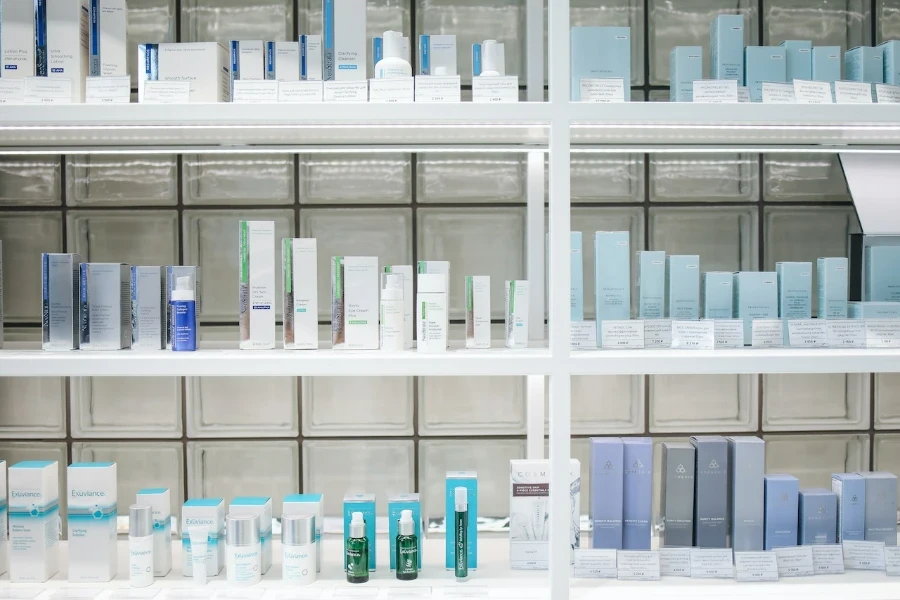While many beauty products attempt to dazzle us from the shelves, moisturizers are steadfast allies in our quest for healthy, radiant skin. They are the final, essential step in our daily regimen, sealing in hydration and acting as a protective shield against the rigors of daily life. However, not all moisturizers are created equal, and herein lies the crucial distinction that every retailer in the beauty industry should know: the difference between water-based and oil-based moisturizers.
In this blog, we dive into the world of moisturizers, exploring the unique attributes of water-based and oil-based variants, unraveling common myths, and offering insights into how to guide customers toward skincare bliss. So, join us as we embark on this journey to unveil the secrets behind radiant, well-nourished skin.
Table of Contents
Overview of the moisturizer market
Understanding water-based moisturizers
Understanding oil-based moisturizers
Considerations for retailers
Conclusion
Overview of the moisturizer market
The global moisturizer market was valued at US $10.12 billion in 2022 and is projected to grow from US $10.60 billion in 2023 to US $14.40 billion by 2030, with a compound annual growth rate (CAGR) of 4.48%.
An increasing awareness of the benefits of healthy skin due to widely advertised skin concerns – such as the effects of pollution, UV, stress, and more – has resulted in a consistent rise in demand for skincare products. This includes moisturizers, which have become an essential tool in consumers’ self-skincare regimen.
Moisturizers can play a significant role in reducing such risks as well as prevent premature skin aging, and their popularity is indisputable: according to Google Ads, searches related to anti-wrinkle moisturizers have over 100k monthly searches.
Understanding water-based moisturizers

As the name suggests, water-based moisturizers are skincare products primarily composed of water. These moisturizers are celebrated for providing effective hydration without the heaviness or greasiness often associated with their oil-based counterparts.
Let’s break down the key aspects of water-based moisturizers:
Composition
- Water: The star ingredient in these moisturizers, water, serves as the base and primary source of hydration. It’s what gives these products their lightweight and easily absorbable nature.
- Humectants: They often contain humectants like glycerin, hyaluronic acid, or sorbitol. These compounds attract and retain moisture from the environment, helping to keep skin hydrated throughout the day.
- Emollients: Some water-based moisturizers include gentle emollients like lightweight oils (e.g., squalane) to provide a silky texture and seal in moisture without feeling heavy
- Additional ingredients: Depending on the specific product, water-based moisturizers may contain beneficial ingredients such as vitamins, antioxidants, or botanical extracts to address different skincare concerns
Benefits of water-based moisturizers
- Hydration without the grease: They offer a surge of hydration, making them perfect for quenching thirsty skin without leaving a heavy or oily residue
- Suitable for oily or acne-prone skin: They provide hydration without exacerbating excess oil production or clogging pores
- Ideal for humid climates: Water-based moisturizers thrive in humid environments, where heavy creams can feel suffocating. They keep your skin moisturized without contributing to discomfort or stickiness.
The target audience for water-based moisturizers
The target audience for water-based moisturizers varies based on individual skin types, preferences, and environmental conditions, but may include:
- Oily skin types: They are well-suited for individuals with oily or combination skin. They provide essential hydration without adding excess oil to the skin, helping to balance moisture levels.
- Acne-prone skin: Those prone to acne often find water-based moisturizers beneficial because they are lightweight and less likely to clog pores. Look for non-comedogenic formulations for the best results.
- Younger consumers: Water-based moisturizers are popular among younger consumers who may not require intensive hydration but want to maintain healthy skin. The lightweight texture is appealing to this demographic.
- Humid climates: Water-based moisturizers can be an excellent choice in regions with high humidity, where the air is already moisture-laden. They provide adequate hydration without making the skin feel overly greasy.
Understanding oil-based moisturizers

Oil-based moisturizers, often referred to as oil-rich or lipid-rich moisturizers, are a category of skincare products that derive their primary nourishing and hydrating properties from various oils. These moisturizers are renowned for their ability to provide deep, intensive hydration.
Here’s a closer look at oil-based moisturizers:
Composition
- Oils: The critical feature of oil-based moisturizers is their high oil content. These moisturizers can include a variety of oils, such as jojoba oil, argan oil, coconut oil, and more. These oils are rich in fatty acids and provide intense nourishment to the skin.
- Emollients: Besides oils, these moisturizers often contain emollients like shea butter or cocoa butter, adding a layer of protection, reducing moisture loss, and leaving the skin feeling soft and supple
- Occlusive agents: Some oil-based moisturizers may incorporate occlusive agents like beeswax or lanolin. These ingredients create a physical barrier on the skin’s surface, helping to seal in moisture and protect against environmental stressors.
- Additional ingredients: Depending on the specific product, oil-based moisturizers may include vitamins (such as vitamin E), antioxidants, or botanical extracts to provide other skincare benefits
Benefits of oil-based moisturizers
- Intense hydration for dry skin: They provide deep hydration, making them an excellent choice for individuals with dry, dehydrated, or flaky skin. They help to replenish lost moisture and restore the skin’s natural barrier.
- Nourishing and soothing: These moisturizers are often packed with essential fatty acids, vitamins, and antioxidants. They can soothe and nourish the skin, helping to reduce redness and inflammation.
- Protective barrier: They create a protective barrier on the skin’s surface, preventing moisture loss and shielding it from harsh environmental elements, which can be particularly beneficial in cold, dry climates
The target audience for oil-based moisturizers
As with water-based moisturizers, the target audience for oil-based moisturizers also varies based on various factors, but may include:
- Dry or dehydrated skin: The top choice for individuals with dry, dehydrated, or mature skin. The rich oils and emollients help restore and retain moisture, relieving dryness and flakiness.
- Mature skin: As skin matures, it loses moisture and elasticity. Oil-based moisturizers are ideal for addressing these concerns, helping to minimize the appearance of fine lines and wrinkles.
- Cold and dry climates: In colder, drier climates where the skin is more susceptible to moisture loss, oil-based moisturizers are a protective shield, preventing dryness and maintaining skin comfort
- Sensitive skin: Some individuals with sensitive skin find relief in oil-based moisturizers that contain soothing ingredients like chamomile or calendula. These products can help calm irritation and redness.
- Nighttime skincare: Many people incorporate oil-based moisturizers into their nighttime skincare routines for their intense hydration and reparative properties. These moisturizers are absorbed into the skin overnight, helping the user to wake up feeling refreshed and rejuvenated.
Considerations for retailers

When deciding which products to stock, aim for a diverse range of moisturizers that encompass water- and oil-based options. This diversity ensures that customers with varying skin types and preferences are more likely to find suitable products within your store.
For in-person retailers, take into account the climate in your region. If you’re located in an area with varying weather conditions, consider offering a seasonal selection. For example, emphasize oil-based moisturizers in the winter and water-based options in the summer.
Conclusion
Knowledge is the foundation upon which beauty businesses thrive. Understanding the differences between oil-based and water-based moisturizers isn’t just about choosing the right products, it’s about empowering customers to make choices that enhance their skincare routine with products that suit them the best.
By curating a thoughtful selection of moisturizers and employing savvy marketing strategies, you create an environment where informed choices lead to radiant, satisfied customers. You can start this process by browsing the thousands of moisturizers and skincare products on Alibaba.com today.




